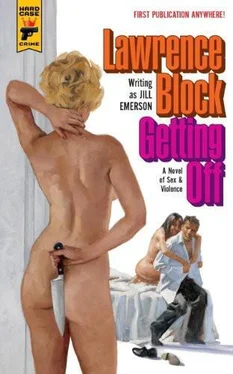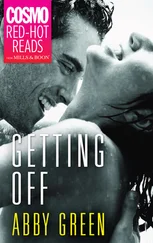“We’ll never know,” she said, and his expression suggested that he enjoyed the put-down more than anything an acceptance might have led to. That was almost enough to make her change her mind, but not really. Better to take the tattoo’s advice.
If only she knew something about Graham Weider besides his name.
His employer, for instance. It was a corporation, and he must have mentioned its name, but if it had ever registered on her memory, time had long since pressed the Delete key.
And she couldn’t just call firms at random. Even if she limited herself to Fortune 500 corporations, how many of them had Chicago offices? Four hundred? Four-fifty?
No, that wouldn’t work. But his New York hotel would probably have his business address on file, and that would let her know where he worked.
If only she could remember the hotel.
Well, it was somewhere in New York, specifically somewhere in midtown Manhattan. And it was a first-rate hotel, not some budget bargain spot. But which one?
Why the hell couldn’t she remember? She’d been there, for God’s sake, and not once but twice — once when he took her to his room and fucked her, and another time when he stood her up and she went to the front desk looking for him. And he’d left a note for her, on a piece of hotel stationery, but of course she hadn’t kept it.
Dammit anyway. She could remember standing in the lobby, reading the note. She could even recall the supercilious look on the face of the desk clerk.
Or was that some other snotty clerk, in some other hotel on some other occasion? Or was it all just her imagination trying to fill in the blanks?
Graham Weider, she thought. Graham Weider from Chicago, not Joe Blow from Kokomo. Why was he giving her so much trouble?
She tried the phone again, working her way through the Weiders. More often than not she’d get a machine, and rang off without leaving a message. The Weiders she managed to reach had never heard of a Graham Weider. “How does he spell it?” one of them asked her, and she started in: “G, R, A—” and was interrupted. “No, Weider,” the woman said. “There are different spellings, you know.”
And that sent her off on a whole new tangent, checking all the area phone directories, looking for Wieder and Wheider and Weeder and Weidter and every other permutation she could think of. A couple of them had the initial G, which triggered some fruitless phone calls, but nothing led anywhere useful.
She gave up on the Weiders, however they spelled their names, and thought about giving up on Graham altogether. Then she remembered something she’d read about Thomas Edison, and how he’d invented the lightbulb. It didn’t just form over his head, as in a cartoon; it took hundreds upon hundreds of experiments, in which the inventor and his assistants employed one material after another in an effort to find a workable filament, one that would glow when electric current ran through it without burning up or out in the process.
At one point, someone consoled Edison for his lack of progress. And he replied that he was making wonderful progress, that he had already discovered umpteen hundred substances that would not work.
That was inspiring, all right, but she couldn’t see that it led anywhere. She went out and walked for a while, stopped for a late-afternoon cappuccino at a little coffeehouse that billed itself as “the anti-Starbucks,” and sat there wondering how she’d come upon the Edison anecdote, and whether or not he’d actually ever said it.
And then, remarkably, a lightbulb, complete with tungsten filament, formed above her own head.
There were a great many Weiders, spelled one way or another, living in or near Chicago, and most of them didn’t answer the phone, and the ones who did were no help at all. And how many Fortune 500 companies were there? That question was right up there with Who’s buried in Grant’s Tomb? and What color is orange juice? There were 500 of them, far too many to call, and there was no guarantee that Graham Weider’s employer was on that list in the first place.
But there were far fewer A-list hotels in midtown Manhattan. And, no matter what time of day she called, there’d be somebody there to answer the phone.
She went back to the Internet café and pulled all the midtown four-star hotels from the hotels.com site, then found a quiet bench in Lincoln Park and worked her way down the list from the top. “Hi, my name’s Susan Richardson and I’m on the organizing committee for the upcoming class reunion for Oak Park High. It’s my job to track down the graduates we’ve lost track of, and one of our class members, well, about the only thing anyone could come up with was that he always stays at your establishment on business trips to New York. So I was wondering—”
The people she talked to were remarkably cooperative. Maybe it was the wholly frivolous nature of her request; she had the feeling they’d have made less of an effort if she’d claimed an urgent business reason to establish contact with Graham Weider, but how could they resist something as pointless as a high school reunion?
And perhaps it was their positive attitude that sustained her when the first ten hotels were unable to find Graham Weider in their records. Ten more failed filaments, she thought. Ten steps closer to success.
Her eleventh call was to the Sofitel on West 44th, and this time the lightbulb blazed like the sun.
It took her an hour to pack and check out of her hotel, and most of another hour to get through traffic to O’Hare. She ate a Caesar salad and drank a bottle of iced green tea while she waited for her flight to Seattle, which was just as well, because all they gave her on the plane was a cup of truly bad coffee and a tiny packet of trail mix.
It was early evening when they landed at Sea-Tac. She picked up her suitcase at Baggage Claim and caught a cab to the Heathman Hotel in Kirkland, right across from the library and a block from Peter Kirk Park.
She’d booked a room earlier, and it was ready for her. It was spacious and tastefully appointed, and you could see the park from her window. She’d stayed at the Heathman in Portland once, so she wasn’t surprised at how nice it was, but her enjoyment was tempered somewhat by the knowledge that she couldn’t afford a long stay. Even a single night was a questionable luxury, and you could say the same for the cab ride from the airport. There was almost certainly a bus that would have made the trip for thirty dollars less, not even counting the tip, and it wasn’t as though it hadn’t occurred to her. But she’d been worn out from the travel and keyed up at the prospect of finally finding Graham Weider, and she couldn’t be bothered by the need to watch the pennies.
But she’d have to start doing just that.
She’d had a lot of expenses lately and zero income. She usually paid cash for everything, wanting to avoid a paper trail, and that included airline tickets and hotels. She’d had what seemed like plenty of cash when she left Denver, but it was going fast, and she’d missed an opportunity in Phoenix. Stenchful Steve was the sort of man who’d keep a lot of cash on his person, and she’d never even checked his pants for a wallet. That was a mistake, and so was her failure to clean out the cash register. Between the two, she’d left hundreds of dollars behind, maybe even thousands.
A hell of a price to pay, just because she’d felt in urgent need of a shower.
“Graham Weider, Graham Weider, Graham Weider,” said Bob, the cheerful fellow at Sofitel New York. “Now he was a regular a few years ago, wasn’t he? And then he stopped coming. I hope we didn’t do anything to alienate his affections.”
“I understand he was based in Chicago then,” she ventured.
Читать дальше












